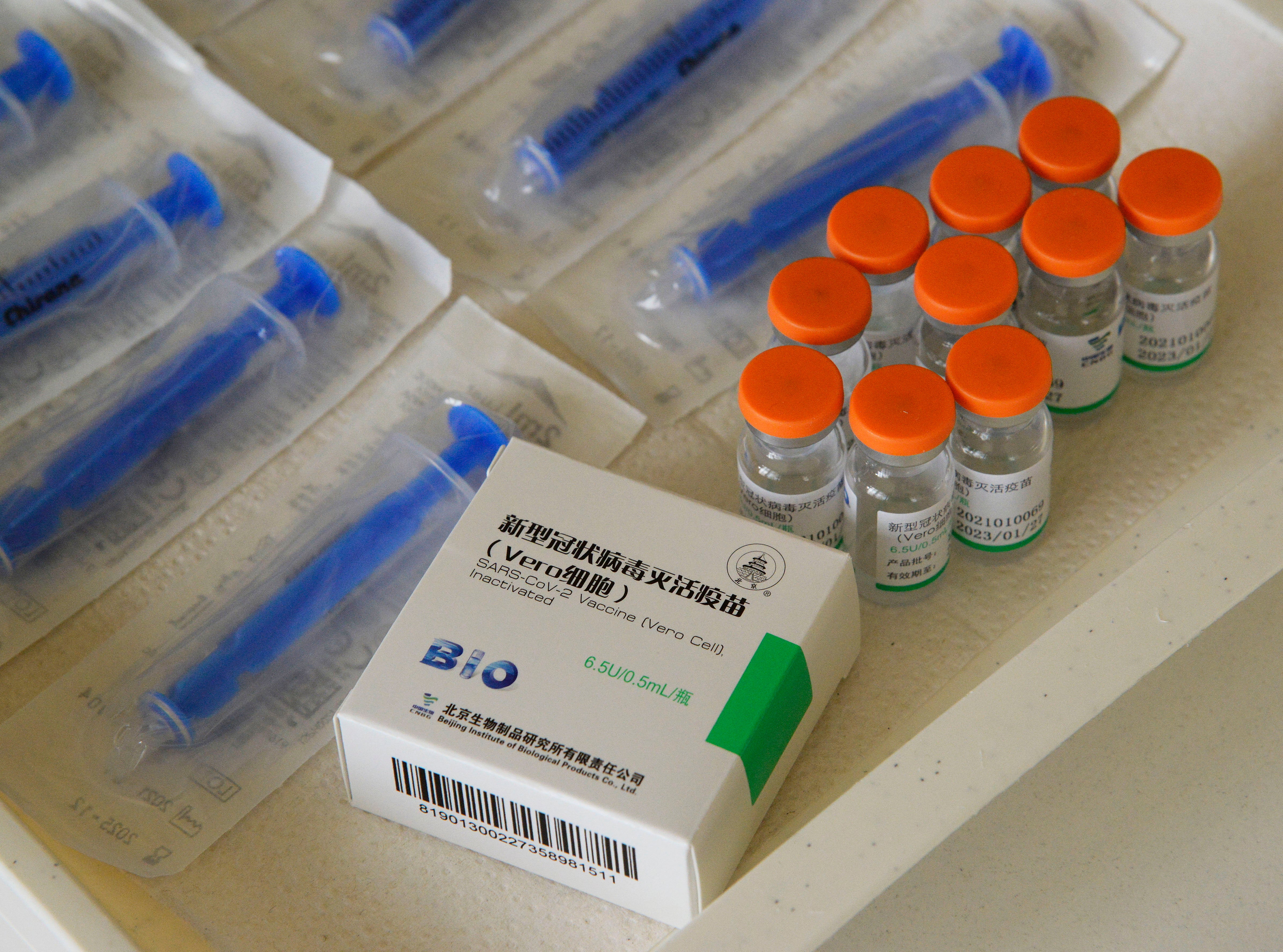WHO: Europe's vaccination program is "unacceptably slow"
A senior World Health Organization official says immunization campaigns against COVID-19 across Europe “unacceptably slow” and risk prolonging the pandemic

Your support helps us to tell the story
From reproductive rights to climate change to Big Tech, The Independent is on the ground when the story is developing. Whether it's investigating the financials of Elon Musk's pro-Trump PAC or producing our latest documentary, 'The A Word', which shines a light on the American women fighting for reproductive rights, we know how important it is to parse out the facts from the messaging.
At such a critical moment in US history, we need reporters on the ground. Your donation allows us to keep sending journalists to speak to both sides of the story.
The Independent is trusted by Americans across the entire political spectrum. And unlike many other quality news outlets, we choose not to lock Americans out of our reporting and analysis with paywalls. We believe quality journalism should be available to everyone, paid for by those who can afford it.
Your support makes all the difference.European nations' immunization campaigns against COVID-19 are “unacceptably slow” and risk prolonging the pandemic, a senior World Health Organization official said Thursday.
Dr. Hans Kluge WHO s regional director for Europe, said vaccines “present our best way out of this pandemic,” but noted that to date, only 10% of Europe’s population has received one dose and that only 4% have been fully protected with two doses.
“As long as coverage remains low, we need to apply the same public health and social measures as we have in the past, to compensate for delayed schedules,” Kluge said.
Even those numbers hide the true scope of the problems facing the European Union s 27 nations, where only about 5.6% of its people have had a first vaccine shot, according to the bloc. In Britain, that figure is 46% of its population.
Kluge warned European governments against having “a false sense of security” for having started their immunization campaigns. He noted that Europe remains the second-most affected region in the world in terms of new coronavirus infections and deaths.
WHO said new COVID-19 infections are increasing in every age group except those over 80, in a sign that vaccination efforts are having an impact in slowing outbreaks. But the U.N. health agency said “early action” to stop the virus' spread must be taken in the absence of high immunization rates.
Faced with rising hospitalizations that were overwhelming hospitals in Paris and elsewhere, French President Emmanuel Macron imposed new measures to combat a resurgence of the virus, including a three-week school closure and a domestic travel ban.
“The region’s situation is more worrying than we have seen in several months,” said Dr. Dorit Nitzan, WHO Europe’s emergency manager, who warned people not to travel or gather in large groups over the coming religious holidays.
"Many countries are introducing new measures that are necessary and everyone should follow as much as they can,” Nitzan said.
Kluge said his message to European countries was that “now is not the time to relax measures.”
___
Jill Lawless in London contributed.
___
Follow AP’s pandemic coverage at https://apnews.com/hub/coronavirus-pandemic, https://apnews.com/hub/coronavirus-vaccine and https://apnews.com/UnderstandingtheOutbreak